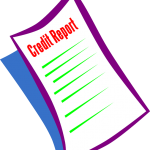 This article first appeared in PNC Insights for Women in Business magazine www.pnc.com/women. Many thanks to PNC for allowing us to republish it here.
This article first appeared in PNC Insights for Women in Business magazine www.pnc.com/women. Many thanks to PNC for allowing us to republish it here.
Chances are, you’re very familiar with your personal credit rating, otherwise known as a FICO score. But did you know that your company is also amassing a credit rating of its own?
Your business rating, like your personal one, takes into account your promptness at paying your debts, whether from business credit cards, leases or suppliers. It also factors in publicly available information on lawsuits, liens or bankruptcies that may reflect on your company’s health. Every business transaction can influence your ability to expand, prosper and even keep your all-important cash flow running.
“You want to be able to show a good track record, because this information helps banks and others determine how you pay your bills, and if you’re a good risk,” says Mary Kay Schneider, executive vice president and underwriting executive for PNC’s Business Banking Lending Center.
Unlike personal scores, which range from 300 to 850, business ratings are scored from 1 to 100. Because individual lenders use the information differently, there’s no cutoff for a “good” or “bad” score, says Schneider. But, clearly, the closer you stay toward 100, the better.
Setting the score
“When your business is just starting out, build your commercial credit profile by opening accounts in your company’s name rather than your own, and paying them promptly,” says Laura DeSoto, senior vice president, Experian Business Information Services. “This practice enables business owners to better protect their credit profiles in the event one of them falters.” (Experian is one of three major bureaus that assess business credit. The others are Dun & Bradstreet and Equifax.)
To maintain a positive score, “be careful and prudent. Only shop for credit when you absolutely need it,” says Peter Bolin, director of Analytics Consulting for Experian Business Information Services. Too many cards could signal you’re overextended, and lower your score. When you do take credit, try to keep your outstanding balance to no more than 20% to 40% of your borrowing limit, Bolin suggests.
If your score takes a hit for any reason, redouble your efforts to pay each bill promptly. If you’re seeking credit from a bank or supplier at such a time, “One of the best things you can do is to be up front with the lender,” says Gavin Geraci, senior vice president, Business Banking credit portfolio manager for PNC Bank. If possible, bring documentation showing that you’ve resolved the issue.
Such strategies can help you prepare for a time when you may need access to credit quickly. “That’s when your business credit score matters most,” DeSoto says. “That’s not when you want to start building your credit. You want to have it already in place.”
Unlike your consumer credit score, which you can obtain for free, monitoring your business credit rating generally involves a fee. But you can glean valuable information beyond your 1–100 score, such as a summary of your credit activity, the public information that was used in determining your score and more. To get started, check the websites of the individual agencies — creditreports.dnb.com, Equifax.com and Experian.com — for specifics on fees and the information they provide.
_______
This article was prepared for general information purposes only and are not intended as legal, tax or accounting advice or as recommendations to engage in any specific transaction, including with respect to any securities of PNC, and do not purport to be comprehensive. Under no circumstances should any information contained in this article be used or considered as an offer or a commitment, or a solicitation of an offer or a commitment, to participate in any particular transaction or strategy. Any reliance upon any such information is solely and exclusively at your own risk. Please consult your own counsel, accountant or other advisor regarding your specific situation. Neither PNC Bank nor any other subsidiary of The PNC Financial Services Group, Inc. will be responsible for any consequences of reliance upon any opinion or statement contained here, or any omission. The opinions expressed in this article are not necessarily the opinions of PNC Bank or any of its affiliates, directors, officers or employees.
©2016 The PNC Financial Services Group, Inc. All rights reserved. Member FDIC.
